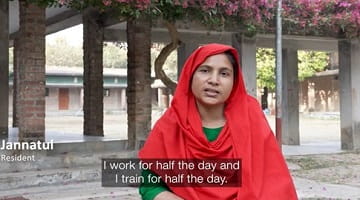The Liverpool Institute for Research in Education
Leading the way in educational research
The Institute has an extensive record of conducting educational research that has been influential locally, nationally and internationally.
Building on the work of the Centre for Educational Research (CERES), founded in 2004, the Liverpool Institute for Research in Education (LIFE) is located in the School of Education within the Faculty of Arts, Professional and Social Studies. In REF 2021, 87.5% of LIFE research was rated as 'internationally recognised and above. LIFE acts as a developmental focus for educational research in the Faculty but also has strong links with the University’s Teaching and Learning Academy (TLA) and with educational researchers across the University.
The core aims of LIFE are to:
- undertake world-class research and lead the debates on the future of education and educational research
- contribute to the development of a research-based understanding of policy and practice in education
- work closely with the potential users of educational research
- offer a supportive research community with clear research induction and support for doctoral students and early career researchers
- promote the development of pedagogical research, theory and advanced research methods
Leadership and strategic direction of LIFE is undertaken by a cross-university institutional Steering Group and includes external and postgraduate representatives. The Institute reports to the University Research and Knowledge Transfer Committee.
LIFE is an inclusive institute and welcomes all staff of the University who engage in educational research. It produces world-class publications and secures significant external funding for its research. The Institute prides itself on ensuring that research excellence is combined with the dissemination and support for research-informed practice with the aim of enhancing the quality of the academic and professional learning programmes in the Faculty and across the wider University. It provides leadership in a range of its activities concerned with research induction, capacity-building, external funding, publications, and ongoing support and training for educational researchers. It also seeks to engage with the wider education and social research community through the dissemination of its activities and outcomes in order to maximise research impact on user communities locally, regionally, nationally and internationally.
Our expertise
Our expertise is organised around research themes and research groups. Our themes are:
- Sports development and education
- Higher education research
- Educational support and development
- Philosophy, culture and history of education
Our research groups are:
- Digital Education and Society
- Educational Psychology
- Nature Related Pedagogies
- (Post)qualitative Research in Education
- Teacher Education and Development (TED)
- Sustainability and Social Justice
- The Absolute Chemistry Research Group
In addition we have links to other areas of the University involved in educational research:




